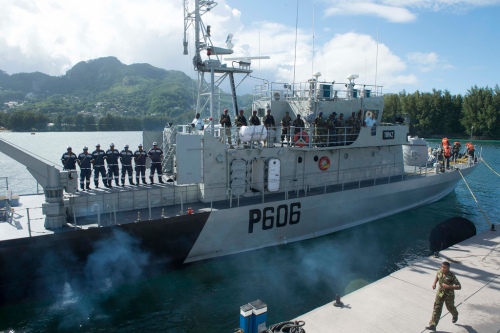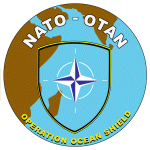Exercise Cutlass Express 2013 ended on November 18th, and I realized this was probably a good time to create profiles on the Express exercise series here on America’s Codebook: Africa.

Boarding team members from East African nations return after a visit, board, search and seizure (VBSS) exercise of Cutlass Express 2013.
The official release marking the conclusion of this year’s exercise has the following to say about Cutlass Express and the series broadly:
“Cutlass Express is one of four African regional “Express” series exercises facilitated by U.S. Naval Forces Europe-Africa/U.S. 6th Fleet. The objective of the exercise was to increase regional cooperation, Maritime Domain Awareness (MDA)/information sharing, and improve communications and interoperability among participating forces in order to counter piracy and maritime threats.”
The four Express series exercises are Cutlass Express, Obangame Express, Phoenix Express, and Saharan Express. Cutlass Express is conducted every year in the waters off East Africa, primarily the Indian Ocean and the Gulf of Aden. The other exercises, also conduct annually, have the same basic objectives, but are conducted in other regions. Obangame Express is conducted in the Gulf of Guinea. Phoenix Express is conducted in the Mediterranean Sea. Saharan Express is conducted in the Atlantic Ocean off North Africa.
Phoenix is the oldest, predating the creation of US Africa Command (AFRICOM) in 2008 by three years, at which time it was a US European Command (EUCOM) sponsored exercise. Both Phoenix Express and Saharan Express regularly involve European participants. This is not surprising as illegal immigration from North Africa to Europe is a major issue for the European Union, highlighted last month by the Lampedusa tragedy. Narcotics trafficking has also become a significant concern. Countering illicit trafficking is a major component of all the Express exercises. More detail about the specific exercises can be found on their respective pages.
